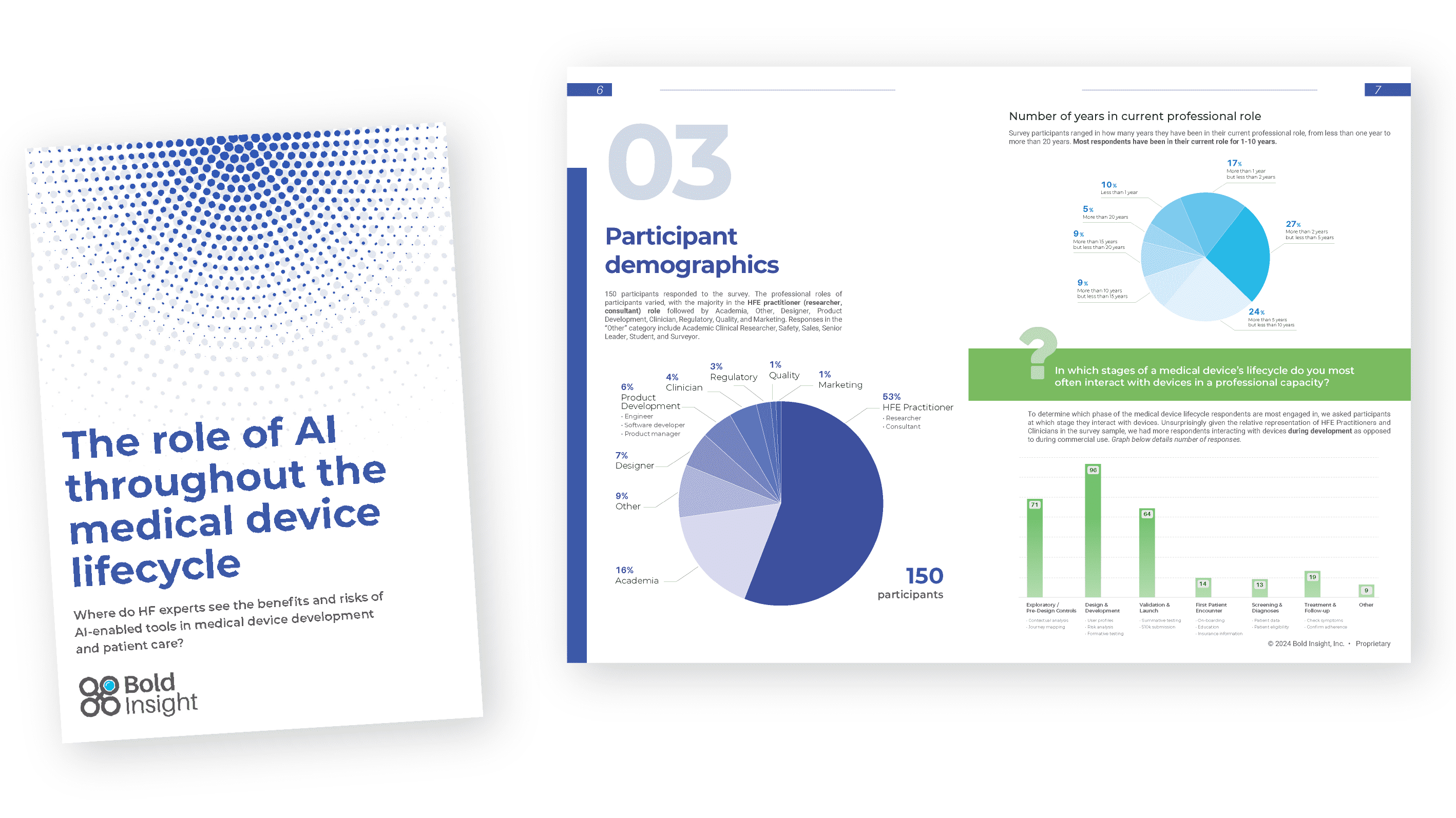
HFES AI research project
Our 2024 HFES Health Care Symposium study investigates how AI could play a role supporting the development and commercial use of medical devices. At this conference, attendees shared their views on current practices, future applications, and discussed the risks and benefits of using AI throughout the medical device lifecycle. Check out the full report to learn what your HF colleagues think!

Do you have research questions for us? Need support with formative or summative testing of your medical device? We would love to talk with you!
We empower healthcare innovation
We primarily work in healthcare, where we have experience across hundreds of products, in diverse environments. We specialize in connected drug delivery & injection devices, SaMD, digital health, surgical tools, diagnostics, and robotics research. We help you to identify and address issues and opportunities for improvement before seeking validation, ultimately leading to successful
submissions.
Missed our AI webinar?
If you missed our December 2023 webinar, watch it now for a high-level overview of the whitepaper’s topics, questions, and findings. In this 30-minute presentation, Lindsey DeWitt Prat, PhD, brings clarity (and data) to the conversation, sharing findings directly from the global UX research community.
We wrote the book
Our practice has been focused on the symbiotic relationship between UX & AI for years. Our founding partners published one of the first books on the topic in 2020. This publication is based on early work explorations of AI technology across consumer electronics and healthcare.
Why AI needs UX
In the book, Gavin and Bob dive into what drives the usage and success of AI-enabled products. They argue it largely depends on a great user experience; context, interaction, and trust are the prerequisites for AI adoption. They detail how barriers to user trust can be overcome and how acceptance and conversion can follow. The book addresses areas including:
- Assessing GenAI capabilities for data management systems
- Understanding potential AI-human connectivity
- Measuring tools for trust & safety with AI technology
- Enabling dialogue around AI tools that don’t yet exist
Related content
Read our latest news & insights
Case studies
5 tips to mitigate use-related risk for pre-filled syringes and other injection devices
Attention to logistics, thoughtful product and research study design, and iterative user testing can help mitigate use-related risk with injection devices.
New Blog Series: Bold Insight and Orthogonal share insights about getting medical devices to market faster
Given the multidisciplinary nature of MedTech and connected health, we have the opportunity to work with a wide variety of professionals including engineers of many stripes, scientists, researchers, designers, experts in regulatory, and quality management. Our...
Case studies